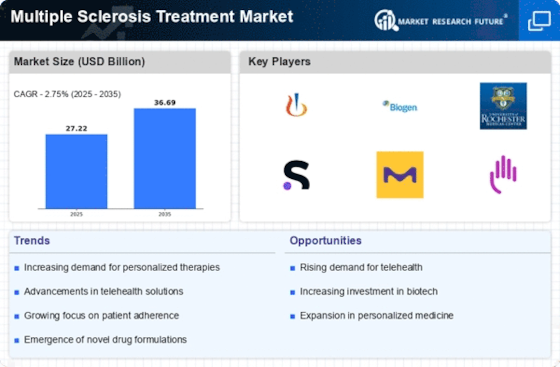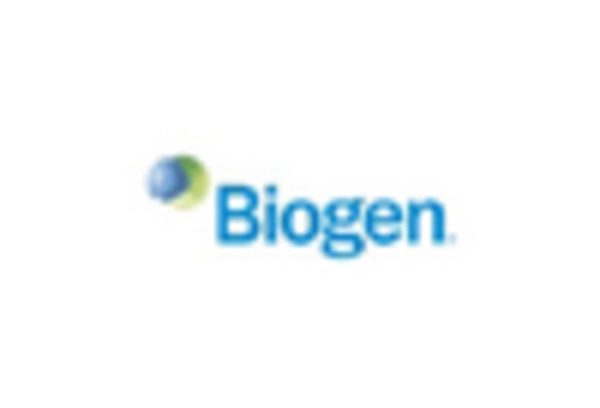Market Share
Multiple Sclerosis Treatment Market Share Analysis
The multiple Sclerosis (MS) Treatment Market is a dynamic and competitive landscape in which pharmaceutical companies employ various strategies to gain market share. This includes one prominent strategy called differentiation that seeks to distinguish products from others on the basis of unique features such as increased efficacy, lower side effects, or convenient administration routes. In addition, pricing is a key factor in positioning market share within the MS Treatment Market. Some firms settle for premium prices, making them look like premium or cutting-edge options with superior benefits. In contrast, others opt for cost leadership strategies, meaning they offer cheaper but equally effective alternatives without compromising on quality. The balance between price and perceived value determines whether a product will be accepted by its target customers. Therefore, the accessibility level of patients who require it should not be underestimated. Partnerships and collaborations are also essential aspects of market share positioning. The big pharmaceutical companies often arrange themselves in strategic alliances with research institutions, biotech firms, or other companies in the industry to pool resources and expertise. These associations may develop new treatments or combination therapies that help a firm improve the competitiveness of its product mix as a whole. For the MS Treatment Market, Innovation and R&D Investments are critical for market share positioning. Companies that consistently invest in cutting-edge research and the development of novel therapeutic approaches are better positioned to address unmet medical needs and stay ahead of the competition. A company can break through the market by developing drugs with unique mechanisms or improved formulations. Another strategy employed in the MS Treatment Market is market segmentation to target specific patient populations effectively. Different subtypes of MS may require tailored treatment approaches, and companies can develop and position their products to address the unique needs of these segments. Moreover, marketing and promotional activities are important for determining market share within the MS Treatment Market. Effective communication on what benefits a given product has, backed by clinical data together with patients' testimonials, may influence prescribing decisions made by healthcare professionals as well as choices regarding therapy among patients. Educational initiatives, patient support programs, and awareness campaigns contribute to building a positive brand image and fostering trust among key stakeholders.


















Leave a Comment